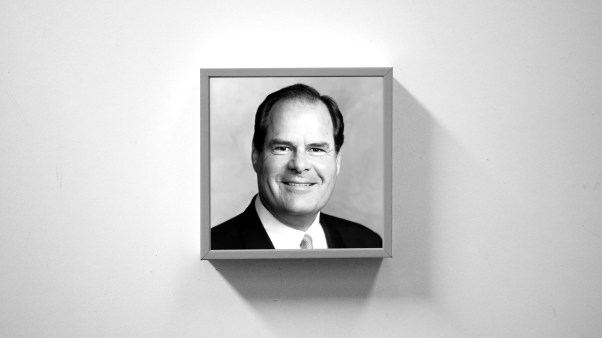The Internal Revenue Department notified a United States citizen that his 1959 charitable contributions of $4,559, rental loss of $1,217, and deduction of $1,200 for two dependents, all totaling $6,976, were disallowed in the absence of supporting evidence of entitlement. In fact, the department made an additional tax claim for $1,917. The rental loss had been claimed because the house involved had had no tenants for the year; yet the demand was made: “State full names of persons who occupy your property … and their relationship to you.”
The ominous overtone of this example is the bland assumption that all people are out to swindle the government whenever and wherever possible, that no one is to be trusted, and until and unless proved otherwise, everyone is to be regarded as an unscrupulous cheat, fraud, and liar.
My purpose here is not to argue that such an attitude is not justified. My purpose, rather, is to deplore the fact that it probably is. In the above case the people involved were able to prove their statements. More than this, they are the kind of people who would no more cheat the government than they would rob a church poor box; they would no more knowingly sign a false statement than they would pick a pocket.
There are many such high-principled people. Yet our society is so used to excusing the weaknesses and peccadilloes of its members that it finds it hard to believe the existence of a large group who will “swear to their own hurt and change not.” Modern literature, moving pictures, television, and radio recognize no such phenomenon. It is generally assumed that everyone today smokes, drinks, flirts, and attends cocktail parties; that almost everyone gambles, cheats, is unfaithful in marriage, and takes every advantage of another’s mistakes. It is assumed that for most people the chief restraints to unsocial behavior are fear of losing reputation or social position, or fear of the law; they are generally held to believe that unswerving moral behavior in all circumstances under present conditions not only is outmoded, but also is an evidence of unrealistic thinking and soft-headedness—at any rate, such behavior is hardly possible in a highly competitive, sophisticated society. I maintain, nevertheless, that such people do exist, and what is more, exist in large numbers. That their presence has not been discovered and noted by current writers is strange indeed.
These unknown non-conformists of our society, besides being scrupulously honest on the financial level—a quality not too uncommon whatever its motivation may be—have other commendable traits as well.
Modern literature, as it mirrors our society, would have us believe that “every man has his price,” that the age of martyrdom for abstract principle or for religious or moral concepts ended with the apostles, or at latest with the sixteenth century. A martyr in the heroic mold of the gods, as in Wagner’s Gotterdammerung, or a more recent Hitler, steeped as he was in Wagner, might be comprehensible to the modern mind. But anyone who without promise of fame or fortune would die an obscure death purely for the sake of conviction is utterly incredible. The motives are suspect even of those who would confront danger for others at the risk of their own health and life. Expiating a crime? Doing penance for a sin? The world shakes its head in bewilderment or incredulity and resumes reading its sports page or the latest titillating scandal.
Vice Gets The Plaudits
Somerset Maugham’s Rain features the moral collapse of a foreign missionary and the triumph of a whore, and makes the cold self-righteous missionary a typical representative of his group. Sinclair Lewis personifies gospel evangelists by his character Elmer Gantry, a religious charlatan who profits from his preaching and fornicates from his profits. Michener’s Tales of the South Pacific draws the depressing conclusion that no principle or conviction is strong enough to hold a man to a course of rectitude in his private behavior. Hemingway, Lawrence, and others sound similar themes.
Such characters and episodes have been so blown up, publicized, dramatized, psychoanalyzed, and otherwise exploited that the public has come to accept them as the complete standard of human behavior. A non-conformist to this pattern is regarded not only as a queer person but also as a rara avis; if as a species he is not already as dead as the passenger pigeon, he is probably as near extinction as the whooping crane. Yet the species is not dead, but is very much alive and actively doing much of the world’s work. Where is it and how may it be identified?
We are often unaware of such a group because it functions quietly and unobtrusively in our midst; its members seldom make the headlines. Like Conan Doyle’s typical Englishman, they smile at breaking their necks but turn pale at breaking the law. They rarely see the divorce courts, maintaining the anachronistic and unconventional view that romantic love and happiness are to be found within the marriage relationship, and that matrimonial vows are a solemn pledge, not a mere ceremony to meet social and legal requirements. While they may be ambitious, they are not overly acquisitive; keeping up with the Joneses is not their idea of success. They are not hermits or recluses, however much their lack of recognition by modern writers and commentators might suggest the contrary. An unsophisticated, idealistic, and patriotic people, they are devoted to duty, dedicated to God, country, and neighbor. They put principle before expediency. They are quick to respond to a call for help and to contribute to worthy causes. With these motivations and viewpoints they find little time or need for the psychiatrist’s couch.
An Impressive Minority
I have not pictured something imaginary that could exist only in Utopia. I have pictured something very real—a minority group, yes, but one whose numbers are nevertheless impressive! They are best characterized, perhaps, as “men of good will.” They are what is right with America and the world. Imperfect though they may be, they nevertheless subscribe to a higher code for themselves and for society than do most of their contemporaries. Though non-conformist in this sense, they are interwoven with the warp and woof of society. They exert a profound and stabilizing influence seldom suspected by the pushing, status-seeking, pleasure-loving, headline-hunting, money-mad majority. Being non-conformist they are generally ignored by publicity media but are there to help when trouble comes. They furnish the missionaries to foreign lands and supply millions of dollars annually to support them. Schools, sanitation, public health measures, hospitals and clinics with physicians and nurses are provided—without government subsidies! Of these sacrifices and benefactions to society the public knows very little.
The people of whom I sing are those who subscribe to the Judeo-Christian ethic and are truly dedicated to its principles. I remember a conversation with a Korean dentist in Seoul shortly before the coup d’etat of 1961. “But, doctor,” I had said, “you must have some dedicated men in our National Assembly.” “Yes, doctor, we have many dedicated men,” he said wryly, “dedicated to themselves.”
In contrast, those of whom I sing observe the injunctions, “When thou doest thine alms, do not sound a trumpet before thee as the hypocrites do in the synagogues and in the streets, that they may have glory of men,” and “Whosoever will be chief among you, let him be your servant.”
While most persons in this group are religiously active, they represent no one particular church, synagogue, or other religious organization. Many who are not committed to any religious body are highly motivated and make notable contributions to the public welfare. Their personal lives may also be impeccable. Even so, they are following a traditional code of morality and conduct which if traced back will invariably be found to stem from the Bible. Such a code is frequently derived from Pilgrim or Puritan ancestors or tradition.
Has anyone today the temerity to commend the Puritan tradition after all the scorn that has been heaped upon it by popular writers of the past forty years? What about the witch hunters, the blue laws, the stern self-righteous moralists, the intolerance of our Puritan ancestors? What about the religious persecutions that caused Roger Williams to say he would rather live among the Christian savages (of Rhode Island) than among the savage Christians (of Massachusetts)?
No defense can be made of these perversions of Christianity. They are not in the teachings of Christianity, but in the practices and traditions of Christendom—and there is a world of difference. Much in Puritanism was wholesome and sound. A “New England conscience” was something to live by, to be relied upon, so that it could be said of a man that “his word is his bond.” Despite all the sneering of the professional debunkers, Puritanism in its best meaning survives today to the strengthening and stabilizing of American society and its institutions.
God’S Standards Are Forever
So the Judeo-Christian code is still with us, however battered and debilitated it may be. To many people the Bible is more than a talisman to bring good luck; it is the Living Word of the Living God, a guidebook for daily conduct. There must be a multitude of these non-conformists, since their Guidebook is still the best seller, with every new version an immediate sell-out. What would our world be like without this unique gyroscope to keep it balanced? Like Communist Russia, perhaps?
The growing sophistication of people as seen in their complacency and cynicism has greatly eroded this code in modern society. The reduction of spiritual values in present-day concepts of life has caused a deterioration in standards with a tendency to materialism as gross as that of Marx and Engel. Marxist philosophy rests upon a dialectic; it is established by examination and argument. But the gross sensuality and materialism of our society has arisen purely by default; it has no underlying or sustaining philosophy. Men have blundered into this slimy quagmire by failing to heed all warning signs. Crime, infidelity in marriage, divorce, delinquency—both adult and juvenile, sexual perversions, political chicanery, forgery, counterfeiting, gangsterism, subversive activities, treason, larceny, religious charlatanism, and all other anti-social behavior are the inevitable result when men have no code to live by, no guide for faith and practice.
There are people in the world today who refuse to sell their conscience, refuse to wink at sin, and refuse to compromise eternal principles of right and wrong. You may not be able to identify or recognize them on the street. They wear no flowing gowns, no peculiar garb. The sharp line of distinction is found in their private lives. They pray; they study the Bible, and teach it to their children. They attend weekly church or synagogue services and inculcate right principles in their meetings.
The Assault On Integrity
Those who hold high principles of personal conduct with or without religious motivation seem to be the special target for bitter attacks by popular writers, particularly in this century. Men of an earlier day like Dickens, Reade, Scott, and Irving were themselves religiously oriented and did not attack people in this regard. It remained for writers of the twentieth century to show their fangs, to tear and slash at common decency. Mencken unleashed his witty, vituperative scorn upon the “Bible Belt,” as he called the South, and made it appear a thing of shame. Shaw, Lewis, Maugham, Mencken, Lawrence, Hemingway, Fitzgerald, and others introduced what a Saturday Evening Post editor so well named the “Era of Sneer.” Other writers of less technical skill, observing their success, have imitated their offerings to the point where bookracks in the stores are groaning under loads of slime and indecency.
Why are lives of integrity, probity, and morality so often vilified? Why is depravity extolled? Could it be that many of these writers know nothing of what they so vehemently castigate? Are their own lives so corrupt that they must disparage anyone whose life witnesses against them? Maugham must have had to look long to find the prototype of his missionary, Davidson, since for every Davidson there are a hundred Livingstones. Lewis could have found a score of Moodys to refute his Gantry in moral sincerity and integrity.
I confess to a long-time yearning to see a novel based upon marital love and felicity, upon a happy home where God is honored, the children well-behaved, the mother proud of her brood, the husband successful in profession or business and social relationships; a novel without the hard and bitter repartee, the sordidness, the vulgarity and obscenity which have become so universally popular. A novel like this might come with such impact as to be a runaway best seller!
Over sixty years ago Charles M. Sheldon wrote a book in which the leading members of a community pledged to ask themselves, “What would Jesus do?” whenever they faced a decision. In His Steps never became a Broadway hit, but it enjoyed a fantastic circulation and was translated into several foreign languages.
I fear, however, that our most popular writers haven’t the background for that kind of writing, and the non-conformist group I have delineated are too busy with their own world-improvement projects to make the attempt.
Must rottenness always prevail?










